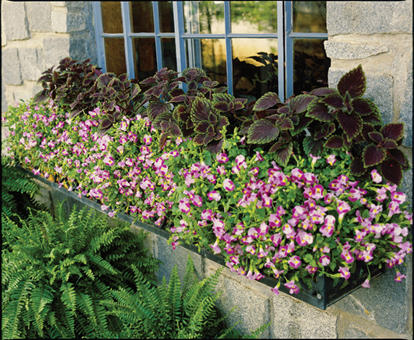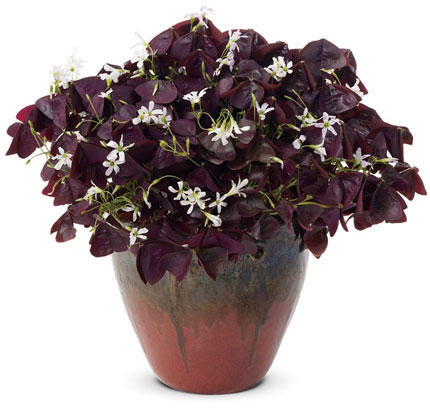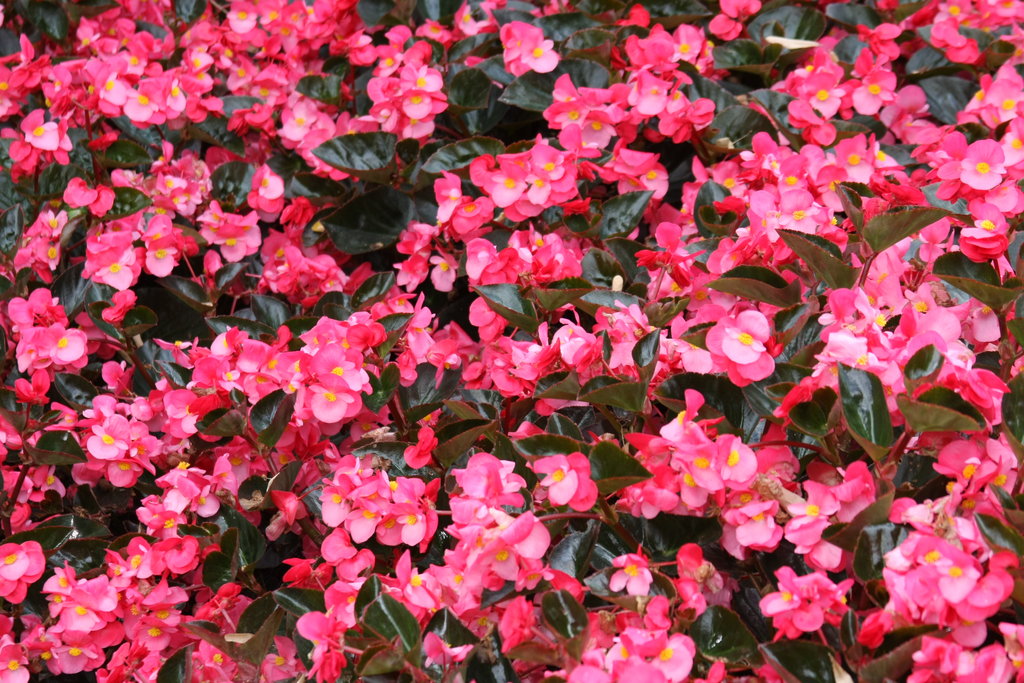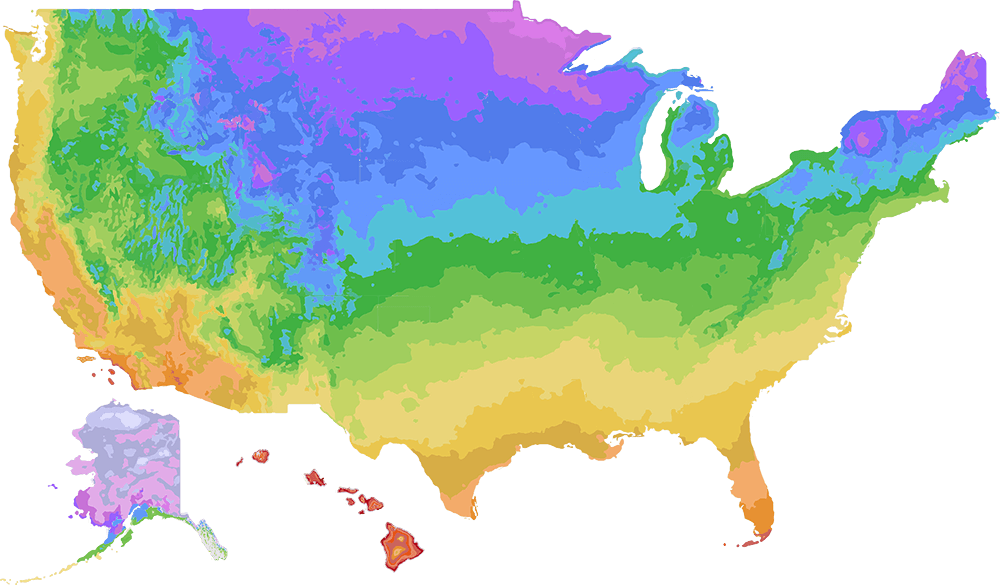The Sky is Falling - Impatiens Downy Mildew
Impatiens is a stalwart annual in shade gardens and with good reason. However, bedding Impatiens are susceptible to downy mildew. Read this article to understand what the disease is, whether you should be worried or not and what possible replacements for Impatiens are out there.
 You might have heard rumors that there is something out there bent on killing our impatiens. It’s not the end of the world, it is not an alien attack, it has nothing to do with politics, it is a not the plant version of Avian Flu, it is just a fungus that has the POTENTIAL to impact our gardens by killing impatiens. Not all impatiens but the common Busy Lizzy (Impatiens walleriana). What type of Impatiens aren't susceptible (or very, very rarely so) are New Guinea Impatiens such as our Infinity series.
You might have heard rumors that there is something out there bent on killing our impatiens. It’s not the end of the world, it is not an alien attack, it has nothing to do with politics, it is a not the plant version of Avian Flu, it is just a fungus that has the POTENTIAL to impact our gardens by killing impatiens. Not all impatiens but the common Busy Lizzy (Impatiens walleriana). What type of Impatiens aren't susceptible (or very, very rarely so) are New Guinea Impatiens such as our Infinity series.
There is a lot of mis-information or partially correct information floating around. Let's talk first about some basics.
- What is this disease? It isn't a virus, it is a fungal disease called downy mildew.
- Where could your plants contract the disease? While the plants at a garden center could have the disease, it is just as likely that those plants COULD (not will) contract it after you plant them in your garden.
- If I plant Impatiens are they destined to die? From cold temperatures yes, but there is no guarantee that you will have issues with this fungus. Downy mildew is predicted to be problematic in some parts of the country this year, as it was last year. How likely you are to have issues is at least partly dependent on where you live.
- When will my plants get the disease/how long will my impatiens live? There is no timetable for when or if your impatiens might get downy mildew or for how long it would take them to die IF they do become infected.
Well, not a lot except know not to buy infected plants, that then infect your garden. Your best local resource is your county Cooperative Extension agent who can give you a better idea of how much of a problem downy mildew is likely to be for your area. I keep the number for my local agent handy because cooperative extension can be helpful in answering a lot of different questions.
How do you know if plants are infected?
Plants will start to lose their lower leaves and when you turn the leaf over and look at the bottom it will be dusted with what looks like white flour. If you see that at all – don’t buy any impatiens! Buy something else.
What can I buy instead?
Here are 7 great options for replacing Impatiens in your shade gardens this summer:
 Infinity® New Guinea Impatiens: the simplest switch out is to the Infinity® series of New Guinea Impatiens which are not susceptible to Downy Mildew. Easy to grow and larger flowered than traditional impatiens, the Infinity® series has great summer performance.
Infinity® New Guinea Impatiens: the simplest switch out is to the Infinity® series of New Guinea Impatiens which are not susceptible to Downy Mildew. Easy to grow and larger flowered than traditional impatiens, the Infinity® series has great summer performance.- ColorBlaze® Coleus: With all the emphasis on getting sun loving coleus for the home gardener, do not forget that these plants are easy and season long color for the shade as well! Excellent in mass plantings or to highlight other shade flowers, the ColorBlaze® series has distinctive colors, shade performance and do not bloom until late in the year, if at all.

- Catalina® Series Torenia: The entire series of Catalina® and Summer Wave® Torenia make great partial shade color and mix well with all the other shade annuals. These provide the trailing component of mixed containers and baskets as well as constant color through the summer. They are heat and humidity tolerant, disease resistant and easy to grow.
- Charmed® Oxalis: Trouble free and easy to grow, these clovers make wonderful shade plantings in both containers and the landscape. Dark foliage and small white flowers provide long shelf life for retailers with consumer success and are very tolerant of shady conditions. Whether Proven Winners® or Proven Selections®, Oxalis makes a great unique addition to the shade garden, whether in the ground or in containers.
- Dolce® Series of Heuchera and other Proven Winners® Perennials and Color Choice® Shrubs: Don’t forget all the great shade perennials we offer, the Dolce® Series being the most well-known; great vibrant colors,
 tolerant of moist and dry shade, and they are trouble free for gardeners. Don’t stop there; we have a complete selection of Hosta, 'Bottle Rocket' Ligularia, Red Wall™ Parthenocissus, Bloom-A-Thon® Azaleas, and a comprehensive line of Hydrangea.
tolerant of moist and dry shade, and they are trouble free for gardeners. Don’t stop there; we have a complete selection of Hosta, 'Bottle Rocket' Ligularia, Red Wall™ Parthenocissus, Bloom-A-Thon® Azaleas, and a comprehensive line of Hydrangea. - Begonias! We have a great portfolio of Proven Selections® cultivars. After the Infinity® Series, Begonias are likely going to be the fastest growing market sector to fill the gaps in shade gardening. With the Big, Nonstop® and Illumination® lines and all the other great begonias we offer you should be able to find a great palette of replacements for impatiens in areas affected by the disease.
- Fuchsia: More often thought of as a plant for containers, some Fuchsia make good garden plants too.
The real secret here is not focusing on what might not be  available but what IS available. In the plants listed here alone, there are tons of colors and textures, for landscape, containers or hanging baskets. Use downy mildew an opportunity to try a new slate of great plants for shade gardening. This can simply be an opportunity to try something different, and potentially more interesting, in your shade garden!
available but what IS available. In the plants listed here alone, there are tons of colors and textures, for landscape, containers or hanging baskets. Use downy mildew an opportunity to try a new slate of great plants for shade gardening. This can simply be an opportunity to try something different, and potentially more interesting, in your shade garden!
This is not the end of the world, it is just a change in how we garden. If gardening teaches us anything, it teaches us to deal with change. Visit us at www.provenwinners.com or Facebook if you have questions!








